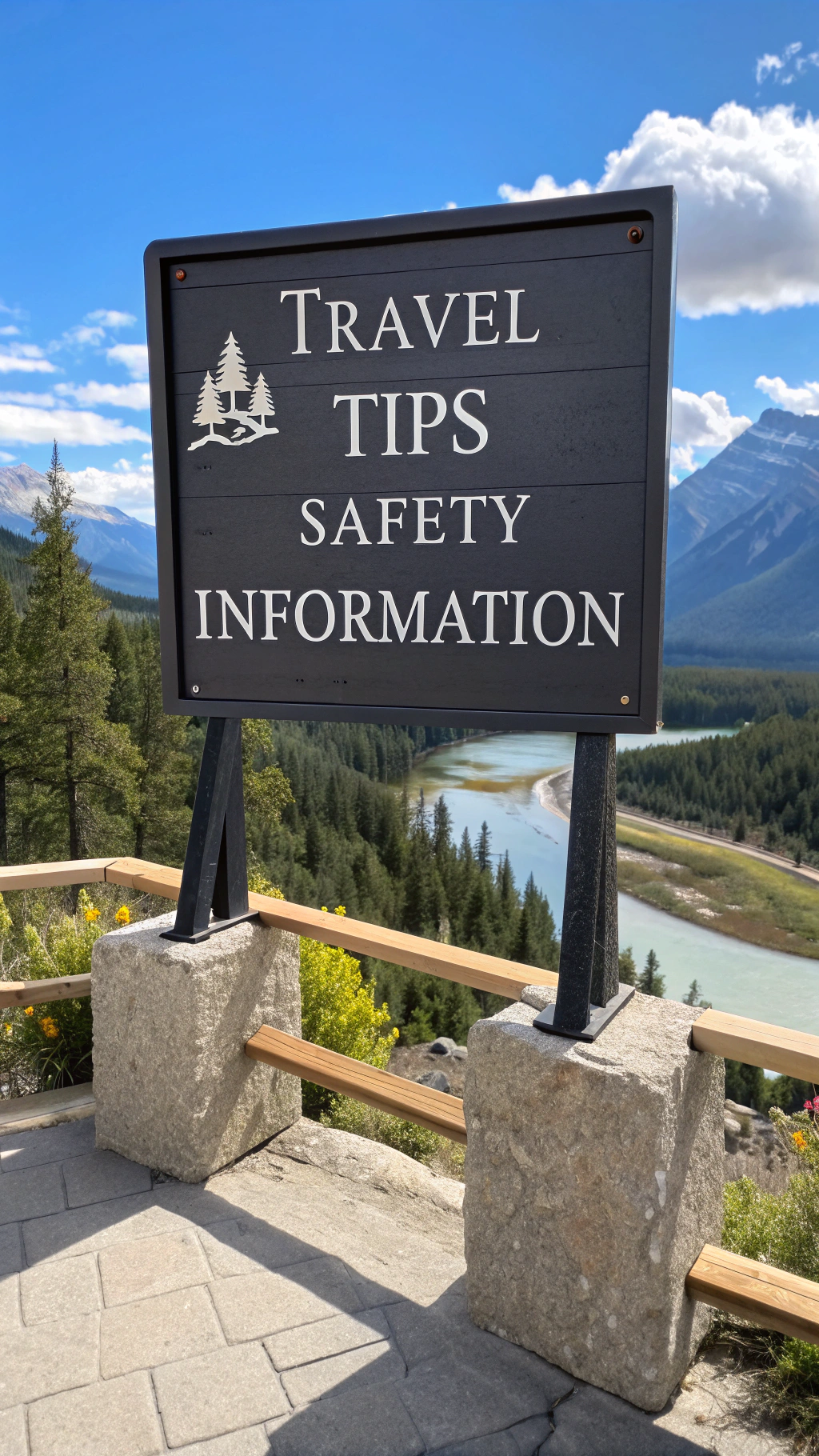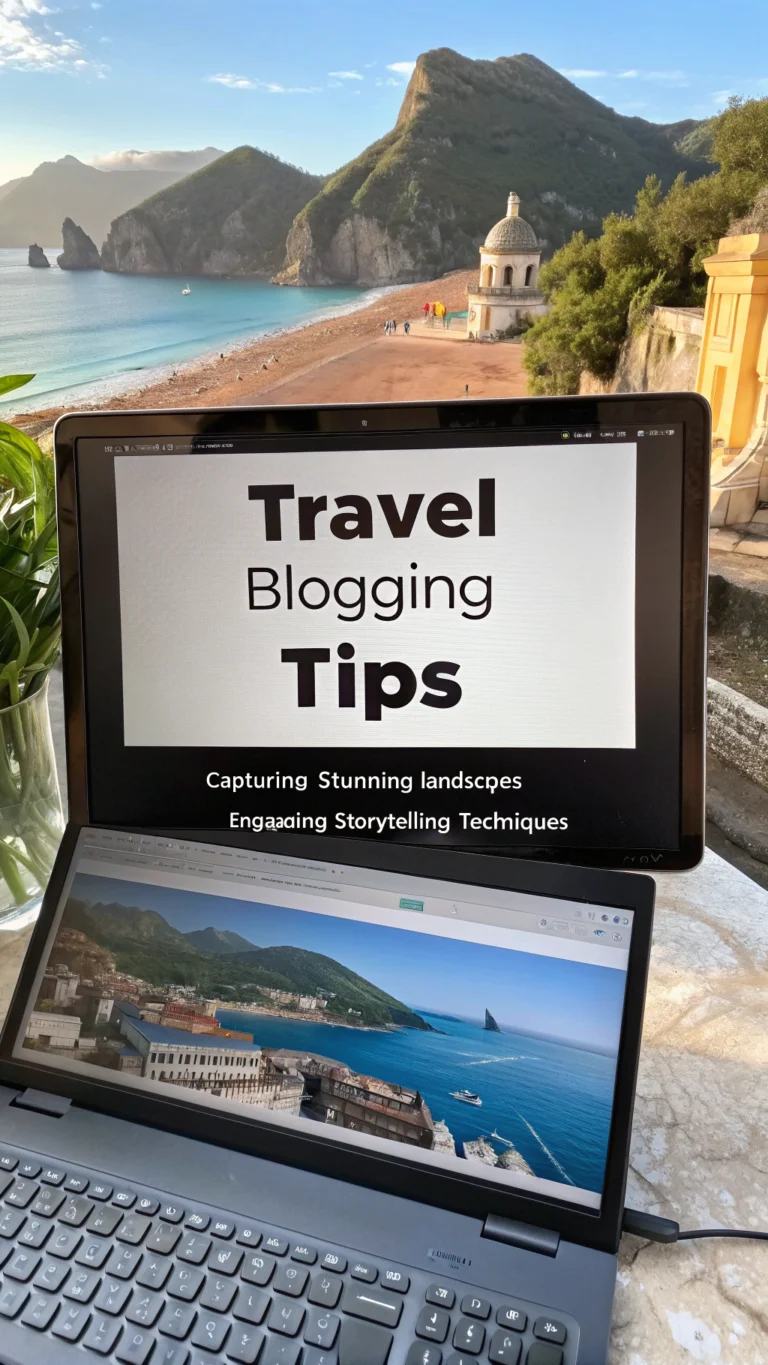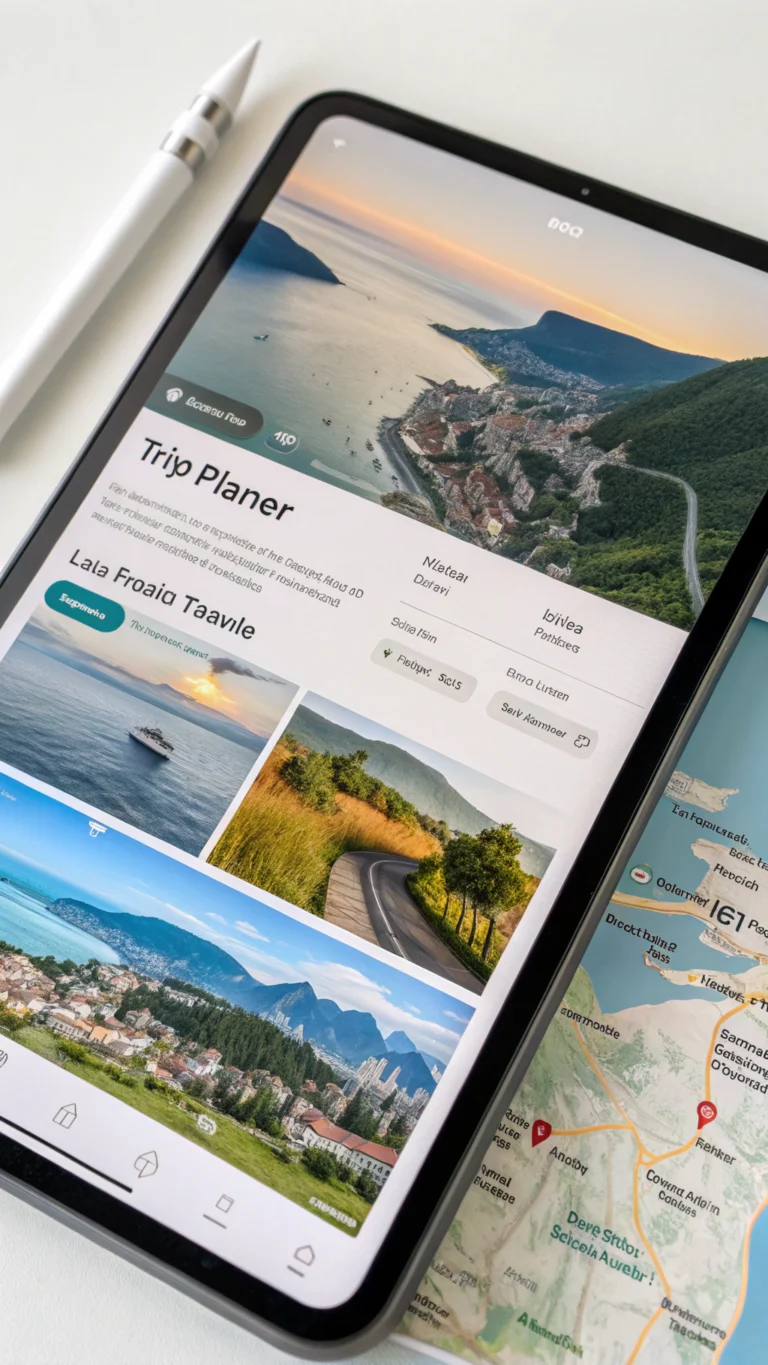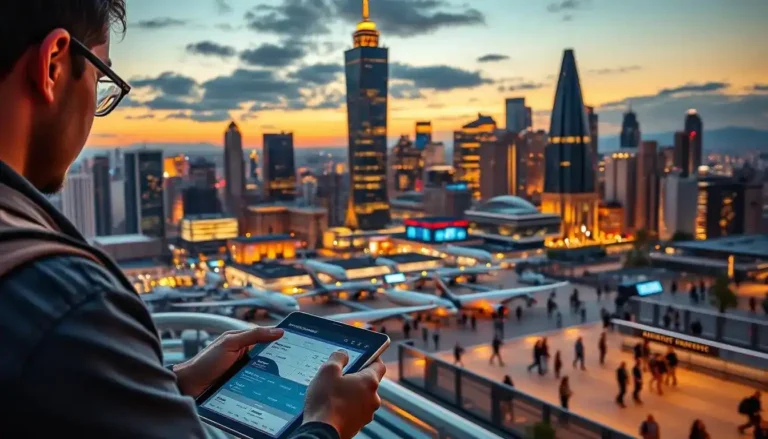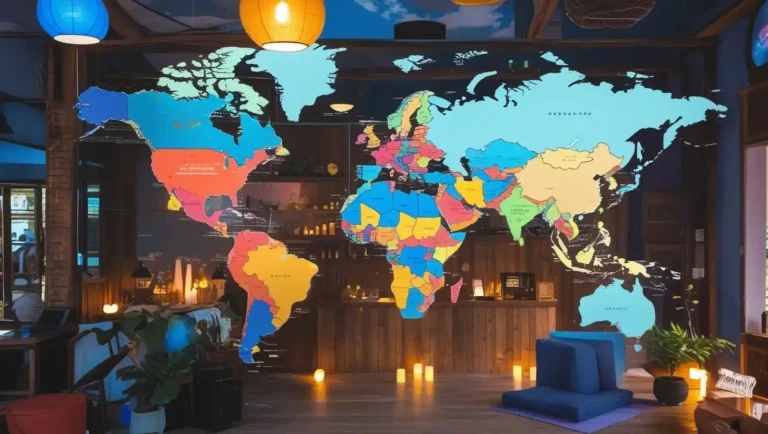Top Travel Safety Tips You Need: Insurance, Scam Alerts & Smart Advice
Table of Contents
Introduction
Ever wonder why, even with careful planning, 68% of tourists have unforeseen safety issues? Even the most experienced travelers can have travel catastrophes, from pickpocketing occurrences in Barcelona to scammers in Bali. The good news? With the right planning and understanding, the majority of travel safety issues may be avoided. We’ll go over important safety and travel tips in this extensive book that every traveler should be aware of before setting off on their next journey.
Destination Safety Overview
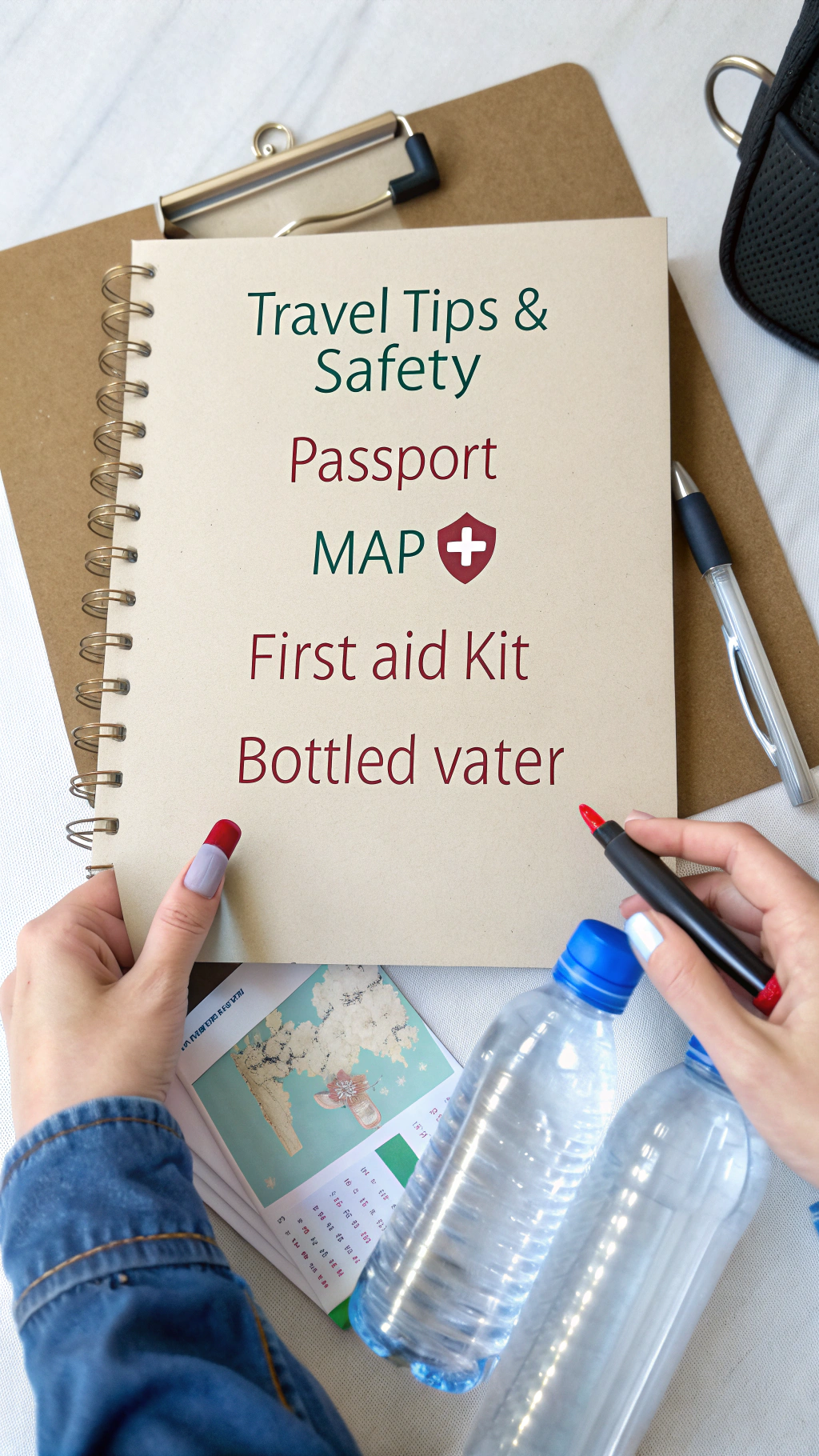
Depending on your destination, safety issues can differ significantly. Even though the Nordic nations are among the safest travel destinations in the world, with crime rates under 1%, some parts of South America and Southeast Asia need extra attention. Knowing your destination’s safety environment is essential; you should prepare for political stability, typical scams, health hazards, and the possibility of natural disasters.
The shoulder seasons (April–May and September–October in many places) are considered the safest times to visit because fewer tourists are there, making you less of a target for opportunistic crooks while still enjoying pleasant weather.
Travel Safety Itinerary Planning
Pre-Departure (1-2 Weeks Before)
- Examine travel warnings and safety problems pertaining to a given location.
- Invest in comprehensive travel insurance that includes coverage for evacuation, medical emergencies, and trip cancellation.
- Create both digital and hard copies of all of your vital documents, such as your passport, insurance policy, and itinerary.
- Use initiatives like STEP (U.S. Smart Traveler Enrollment Program) to register with the embassy or consulate of your nation.
First 24 Hours After Arrival
- Safe, dependable transportation from the airport (if at all feasible, make reservations in advance)
- Locate the police stations and hospitals closest to your lodging to get orientated.
- Get a local SIM card or make sure that roaming internationally is enabled.
- Learn about typical local scams; this will help travelers avoid losing an average of $300.
Ongoing Safety Practices
- Continue to check in with friends and family on a regular basis.
- Keep valuables in hotel safes and just bring what you need.
- Keep an eye out in congested places, especially during the busiest travel times.
- Follow your gut and leave the situation if something doesn’t feel right.
Must-Know Safety Tactics
travel safety tips, travel insurance, travel scams, travel safety advice are essential knowledge for any trip. Here’s what experienced travelers prioritize:
- Money Management: Use money belts or hidden pouches in high-risk areas; never exchange currency with street vendors
- Digital Protection: Use VPNs on public Wi-Fi; enable two-factor authentication on all accounts
- Health Precautions: Pack a basic first-aid kit; research endemic diseases at your destination
- Transportation Safety: Only use licensed taxis or reputable rideshare services; research public transit safety records
Where to Stay Safely
Your overall safety is greatly impacted by the accommodations you choose. Think about these choices:
Hotels with Security: Front desks, security cameras, and room safes are usually available around-the-clock at mid-range and luxury hotels. Ideal for families who value safety and lone travelers.
Verified Vacation Rentals: Make sure to pick establishments with a lot of good ratings and accommodating hosts. Before making a reservation, inquire about neighborhood safety.
Locker-equipped hostels are inexpensive yet safe if you pick establishments with strong security. Perfect for social travelers who nevertheless wish to keep their possessions protected.
Pro tip: Accommodations 1-2 blocks from popular tourist destinations are frequently more secure and cost 15-20% less.
Food & Water Safety
EEven the most adventurous tourists can contract a foodborne illness. Observe these rules:
In nations with dubious water quality, drink bottled or treated water.
Seek out eateries that receive a lot of local business and turnover.
In areas where foodborne illness is common, abide by the “peel it, cook it, or forget it” rule.
Keep digestive aids on hand and be able to communicate in the local language when seeking medical treatment.
When it comes to dietary limitations, find the right words to express your demands. Miscommunication, not deliberate disrespect, is the cause of about 65% of food-related problems.
Essential Safety Gear & Apps
Smart travelers maximize safety with minimal packing:
- Doorstop alarm (under $15) for additional hotel room security
- RFID-blocking wallet to prevent digital theft
- Global rescue service membership for remote destinations
- Safety apps: GeoSure, TripWhistle, and Smart Traveler
Common Safety Mistakes to Avoid
Even experienced travelers make these errors:
- Displaying expensive electronics or jewelry in public spaces
- Sharing too much real-time information on social media
- Neglecting to research local laws and customs (especially regarding dress codes)
- Packing essential medications only in checked luggage
- Assuming travel insurance is unnecessary for “safe” destinations
Budget for Safety Measures
Allocate approximately 5-10% of your total travel budget for safety measures:
- Comprehensive travel insurance: $40-200 depending on trip length and coverage
- Quality luggage locks: $15-30
- Secure transportation from airports: $20-50 premium over public options
- Emergency fund: $200-500 accessible through multiple payment methods
Final Thoughts
It takes planning, not paranoia, to keep yourself safe when traveling. You can reduce hazards and increase enjoyment by implementing these Travel Tips & Safety strategies into your preparation process. Keep in mind that knowledgeable, self-assured travelers are less likely to be targeted, and having backup plans enables you to deal with unforeseen circumstances with poised assurance.
Have you taken any special precautions while traveling? Leave a comment below about your experiences!
FAQs
Is travel insurance really necessary if I already have health insurance?
Yes. Most domestic health insurance plans offer limited or no coverage abroad, and they rarely include emergency evacuation, which can cost $50,000+ depending on your location.
What’s the safest way to carry money while traveling?
Diversify. Keep funds across multiple formats (cash, credit cards, debit cards) and locations (hotel safe, money belt, day bag). Never keep all your payment methods in one place.
How can I check if a destination is safe before booking?
Consult your government’s travel advisories, but supplement this with recent traveler forums, local news sources, and destination-specific safety apps that provide real-time updates.
What should I do if I’m a victim of theft while traveling?
File a police report immediately (necessary for insurance claims), contact your embassy if passport/ID was stolen, and notify your credit card companies and banks if financial information was compromised.
How can solo female travelers enhance their safety?
Research female-friendly accommodations, use transportation apps that share your journey details, and connect with female traveler networks for destination-specific advice and potential travel companions.

